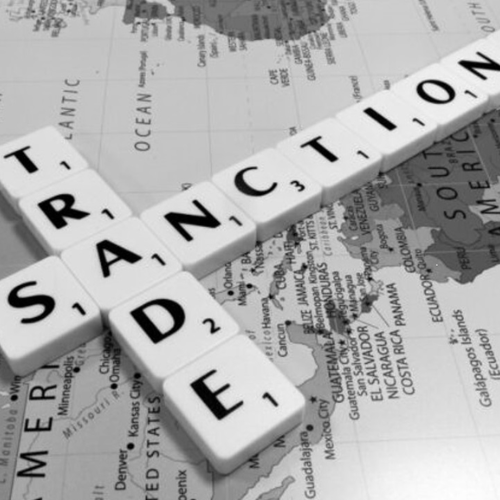Kyrgyzstan is struggling to enforce Western sanctions against Russia. Despite efforts to stop the flow of goods that could support Russia’s defense sector, the country faces major challenges due to business interests, limited government resources, and its close relationship with Russia.
Strained Relations Over Trade with Russia
Since Russia invaded Ukraine in 2022, Kyrgyzstan has seen a rise in trade with Russia. Exports from Kyrgyzstan to Russia grew by 47% in 2023, with many goods passing through the country. Kyrgyzstan and Russia are both members of the Eurasian Economic Union (EAEU), a trade bloc that includes several former Soviet republics. This close relationship has led to concerns that Kyrgyzstan is being used as a backdoor for Russia to bypass Western sanctions.
Western countries, like the United States and the European Union, have placed sanctions on a dozen Kyrgyz companies accused of violating trade rules. These companies have been accused of exporting sensitive electronics and other technology that could be used by Russia’s military. This situation has caused tension between Kyrgyzstan and the West, but the government is reluctant to take stronger action for several reasons.
Limited Government Action
Kyrgyzstan’s ability to monitor and stop the flow of goods to Russia is limited. The government mainly relies on the Kyrgyz Customs Service to track imports and exports, but experts say the system is not well-equipped to stop the illegal trade. Some goods are being moved through illegal channels, making it difficult for the government to track them properly.
In an effort to take control, Kyrgyzstan set up a new government company in 2023 to monitor external trade. The State Trading Company was created to oversee the import and export of goods, especially those coming from countries like China, South Korea, and the EU. However, the company is still new and lacks experience in handling the large number of commercial transactions. Experts say it is impossible for the government to manage the hundreds of transactions that happen every day.
BMW Staff Breach Sanctions in Russian Car Sales
Kyrgyzstan’s business community is also frustrated by these new measures. Many business leaders say they are confused about what counts as a “sanctioned good” and what does not. The lack of clear information is making it harder for companies to follow the rules and avoid penalties. Businesses also fear the new regulations will harm their profits, making them less willing to cooperate with government efforts to stop illegal trade.
The Pressure from Russia
Kyrgyzstan’s government is also worried about upsetting Russia. The country relies heavily on its economic and political ties with Moscow, and officials are careful not to take any actions that could damage this relationship. Russia has already criticized Western sanctions on Kyrgyzstan, calling them an “interference” in the country’s internal affairs.
Kyrgyzstan’s president has also spoken out against Western pressure. He has pointed out the hypocrisy of Western countries, which continue to trade with Russia while calling for its punishment. This frustration is shared by many in the Kyrgyz government, who fear that taking strong action against companies violating sanctions could push Kyrgyzstan closer to Russia and further away from the West.
Despite these concerns, Western countries are continuing to pressure Kyrgyzstan. The U.S. has added more companies to its sanctions list, and experts believe this will not stop the flow of goods to Russia. Some suggest that targeting specific individuals involved in sanctions evasion, rather than companies, might be a more effective approach. However, it remains to be seen whether such actions will make a significant difference in reducing the illegal trade between Kyrgyzstan and Russia.
Kyrgyzstan’s efforts to enforce Western sanctions on Russia face significant challenges. Business interests, lack of resources, and the country’s close ties with Moscow have made it difficult for the government to take strong action. While new measures have been put in place, experts believe they are not enough to stop the flow of goods that could support Russia’s military.


